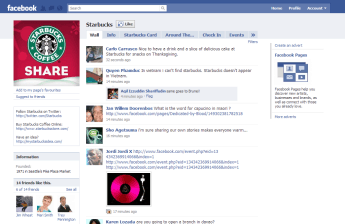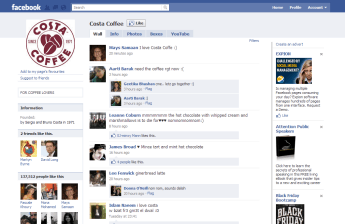The Education Secretary, Michael Gove, appears to want to make all teachers clones. Rigorous personality analysis and aptitude testing is planned for all prospective teachers. It smacks of trying to make all teachers alike. Interestingly, Michael Gove is an acknowledged deep thinker. Having only been an MP for five years, he has risen from the back benches to one of the most important offices of state in a very short time. He is a bit of a clever clogs – that’s a compliment by the way…! Indeed, he is rather like Facebook’s Mark Zuckerberg. They both share depth of thought as a characteristic and the ability to rise quickly from obscurity to fame. They also both appear to want to clone things – in Michael Gove’s case, teachers and in Mark Zuckerberg’s case, online businesses.
I suspect that actually neither of them really wants to clone things – they just want to, in their view, make things better. Mr Gove clearly believes that by using an exacting selection process, we’ll get the best teachers. Mr Zuckerberg clearly believes that by using a standardised business page format on the web, we’ll all be able to process the information more easily. But here’s the problem with such approaches. When you use personality profiling in order to get the right teachers someone has to decide what profile they are looking for, which means, ultimately, all our teachers end up being the same. Equally, on Facebook, when you use standardised layouts, you end up not really being able to distinguish between one business or another.
Take a look at these two screen shots. Immediately you can see they are from Facebook. The Facebook branding is common. But it takes a second or two before you see that one is from Starbucks and the other is from Costa Coffee.


To all extents and purposes these pages are clones. You need to read them carefully, go into some depth, before you realise the differences. It means that for all the millions of dollars spent on branding, both these businesses have effectively said “OK Mr Zuckerberg, you are in charge. We’ll look the way YOU want us to look.” Every business page on Facebook looks much the same. Even those companies who have used the Facebook coding system to produce so-called branded pages, are still surrounded by the dominance of the Facebook brand.
Yet, if you are not on Facebook you are a nobody. There are now an estimated 700m users of Facebook meaning that if your business is not in front of the biggest group of people online you are largely hidden from view. According to a recent survey, businesses are beginning to realise this. The survey found that for 2011 the most important aspect of marketing will be advertising on Facebook. Rather sheep-like, the worlds brands are being herded into the “all the same” world of Facebook. So dominant is Facebook now, it even wants to register a trademark for the word “face”. I kid you not. And it wants us all to start our daily online journey with Facebook.
It is all too much for Sir Tim Berners-Lee, the inventor of the World Wide Web. In an essay in this month’s Scientific American he is calling for a reduction in the power of sites like Facebook. Indeed, Sir Tim suggests that sites like Facebook are effectively “walled gardens” which go completely against the spirit and concept of the open web he invented. It is a notion already noticed by Facebook watchers who realise that the dominance of the company is a potential problem.
Here’s the issue for your online business. If you are not on Facebook or using it to promote your business you are avoiding a massive online opportunity. If you are on Facebook you are allowing them to control, your business. Gone is your ability to brand things the way you want. Gone is your ability to control what happens with your online representation. Gone is your ability to make decisions about the way your business is linked on the web. Facebook is in charge.
But if you don’t use Facebook, gone is your ability to reach the web’s biggest audience. Gone is your ability to target your specific audience. Gone is your ability to listen to your biggest marketplace.
As ever it is all about balance. Remember, even though Facebook is massive, it is not the only place people go to online…! The rest of the web is still alive and well. Remember too that there are alternative methods of social engagement online – including adding services to your own website. You do not have to become a cloned page on Facebook, no matter what Mr Zuckerberg would like. And as any good teacher would have told you, the best thing to be in this world is yourself. Which is why Mr Gove’s proposal’s won’t work either – it is another example of the reduction of individualism. And whether that’s online or offline, it never works.
